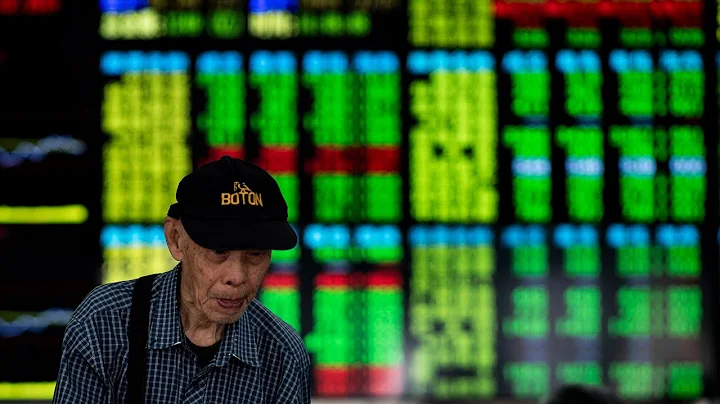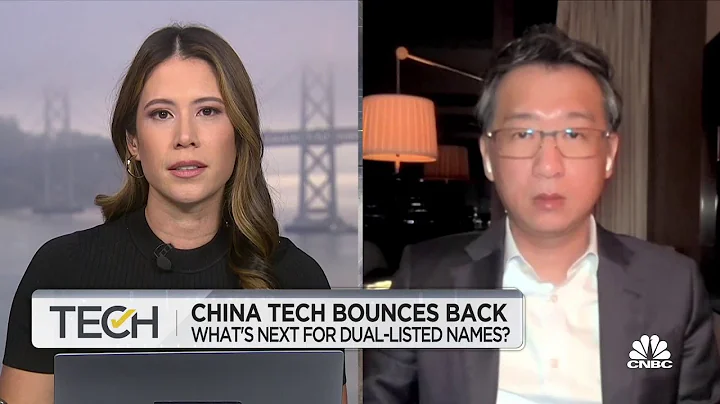This is a mutual criticism caused by a circle of friends, and it also reflects the current controversy between institutional investors on Hong Kong stocks.
As we all know, Hong Kong stocks have risen too sharply recently, and funds going south are extremely enthusiastic. Among them, Li Bei, the founder of Banxia Investment, is firmly bullish on Hong Kong stocks and directly issued a message calling for selling A shares and buying H shares .
Regarding this, on January 19, Chen Yeyuan, the manager of Ruiyuan Fund, said in the circle of friends: Five years ago, there was also a woman who claimed to go south to gain pricing power, and then the bull market was gone...
These remarks were widely discussed in the fund This has attracted great attention from the industry, and there are few fund managers in the industry who directly openly confront each other. After Li Bei saw it, he directly posted an angry message.
However, the article was subsequently deleted. Li Bei said he received a phone call from Chen Yeyuan to apologize.
Ruiyuan Fund Manager Chen Yeyuan’s post on WeChat Moments
sparked heated discussion
html On January 19, a screenshot of Ruiyuan Fund Manager Chen Yeyuan’s WeChat Moments aroused heated discussion on the Internet.He said in the circle of friends: Five years ago, there was also a girl who claimed to go south to gain pricing power, and then the bull market ended...

Anyone who follows the news of the fund industry knows that the possibility that his words imply There are two female fund managers. One is Li Bei, the founder of Banxia Investment. She recently published a high-profile article saying that she was selling A shares and buying H shares, which attracted huge attention; the other is Wang Ruyuan, who is known as the "first sister of the fund" in the past. , she invested in Hong Kong stocks 5 years ago. As a result, in 2016, the net value of her Hong Kong stock products was cut in half, and then fell silent for several years...
And who is Chen Yeyuan? Public information shows that Chen Yeyuan started working in March 2010 and served as a researcher at Changjiang Securities , CITIC Securities , and a senior researcher at Xingquan Fund. In March 2019, he joined Ruiyuan Fund and Serve as senior researcher. From November 4, 2019 to November 24, 2020, he served as the fund manager of Ruiyuan Growth Value Hybrid Securities Investment Fund together with Fu Pengbo and others.
On November 24, 2020, the announcement showed that Chen Yeyuan no longer serves as the fund manager of Ren Ruiyuan Growth Value Hybrid Fund due to work arrangements. At present, Chen Yeyuan has not publicly served as a fund manager for other products.

Netizen: A WeChat Moment
Two female heroes were "recruited"
After this Moment was posted, it quickly spread on the Internet and attracted heated discussion.
Some people think that this circle of friends has blackmailed two heroines.
Some people also pointed out that Chen Yeyuan is sexist: there are so many male fund managers whose performance has been cut in half, and no one dares to use sob to refer to him. Is there any other place in Chen Yeyuan's life where he can show his masculinity?

However, some people have analyzed that the signal behind this is at least: at least three top public equity companies are not so optimistic about Hong Kong stocks.

Li Bei posted an angry message
Regarding Chen Yeyuan's circle of friends, Li Bei, who has always been quite personal, directly linked him to the WeChat public account.
html Late at night on January 19, Li Bei posted: "Mr. Chen from Ruiyuan Fund, let me advertise for you." In the article, Li Bei said that Chen Yeyuan basically insulted all women.
Information shows that Li Bei graduated from Peking University Yuanpei College in 2005 with a bachelor's degree in finance; in 2007, she graduated from Peking University Guanghua School of Management with a master's degree in finance. From 2007 to 2011, he worked at Bank of Communications Schroder Fund Management Co., Ltd., serving as a researcher and a special account investment manager. In 2015, he went private and established Banxia Investment, mainly engaged in macro hedging investments.
However, late at night, the article was quickly deleted. Li Bei posted again at 12 o'clock in the morning, saying that he received a phone call from Mr. Ruiyuan Chen Yeyuan to apologize. Mr. Chen said that he realized that his words were indeed inappropriate and said that he would respect women more. The previous article has been deleted.

Li Beigang issued a high-profile document: Sell A shares and buy H shares
html On January 18, Li Beigang issued a document saying that he would sell A shares and buy H shares.Why should you buy H shares?
Li Bei gave the following analysis:
In 2020, due to global floods, low interest rates, and strong fiscal stimulus, almost all asset classes in the world have experienced gains, whether Chinese and American stocks, Chinese and American bonds, gold, digital currencies, or commodities. .
The only exception is Hong Kong stocks!
Hong Kong stocks fell throughout 2020, and their performance was almost the worst among major markets in the world.

The discount of H shares relative to A shares is near the highest level in the past 10 years. For stocks listed in both places at the same time, A shares are on average 40% higher than H shares.
For those Chinese listed companies that do not have A-shares, the undervaluation of Hong Kong stocks is even more obvious. For example, the stock prices of the three telecommunications giants (China Mobile, China Unicom, China Telecom), such as CNOOC, are near the lowest levels in many years, which is basically the same as or even lower than the lowest point of the epidemic in March 2020. PEs are all in single digits, and the average dividend yield is greater than 5%.
H stocks have not felt the loosening of overseas liquidity and the strong recovery of China's economy at all.
Why? Because of US sanctions.
The four major banks have been under the shadow of rumors that they may be sanctioned by the United States. CNOOC has been sanctioned, and the three major telecommunications companies have just been delisted from the U.S. stock market. There is a high probability that US capital has basically been forced to sell out these delisted and sanctioned stocks.
In the past many years, there have been many times when foreign capital stole the chips that Chinese institutions had cut on the floor at a low price. This time, it is finally our turn to buy the chips that foreign capital was forced to cut on the floor.
Real value investors should now:
sell A shares and buy H shares;
sell Moutai and buy China Mobile;
sell soy sauce and salad oil and buy CNOOC.
Moreover, this is not just value investing, it is a war of liberation for Chinese investors in the global capital market.
This article comes from China Fund News





















